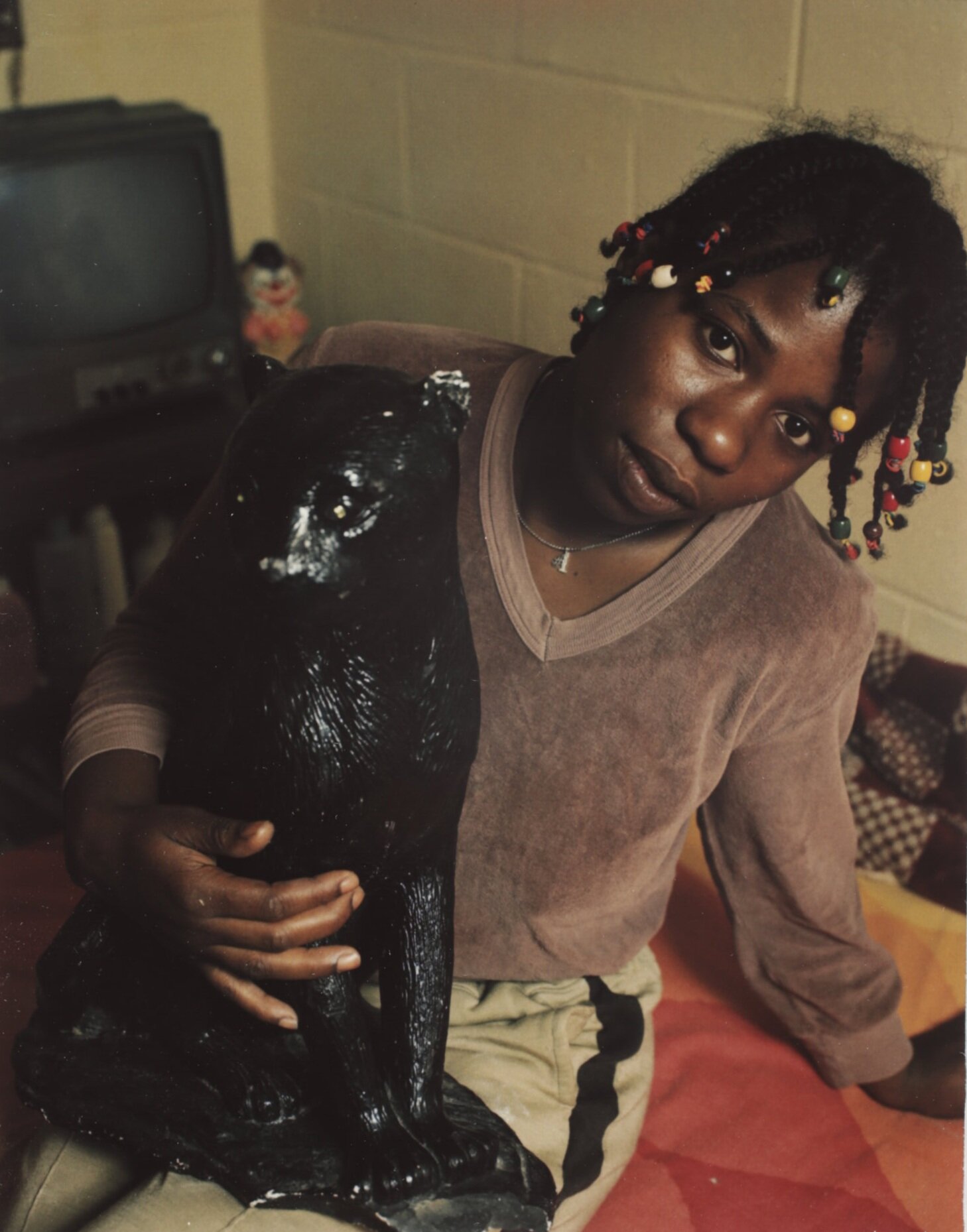
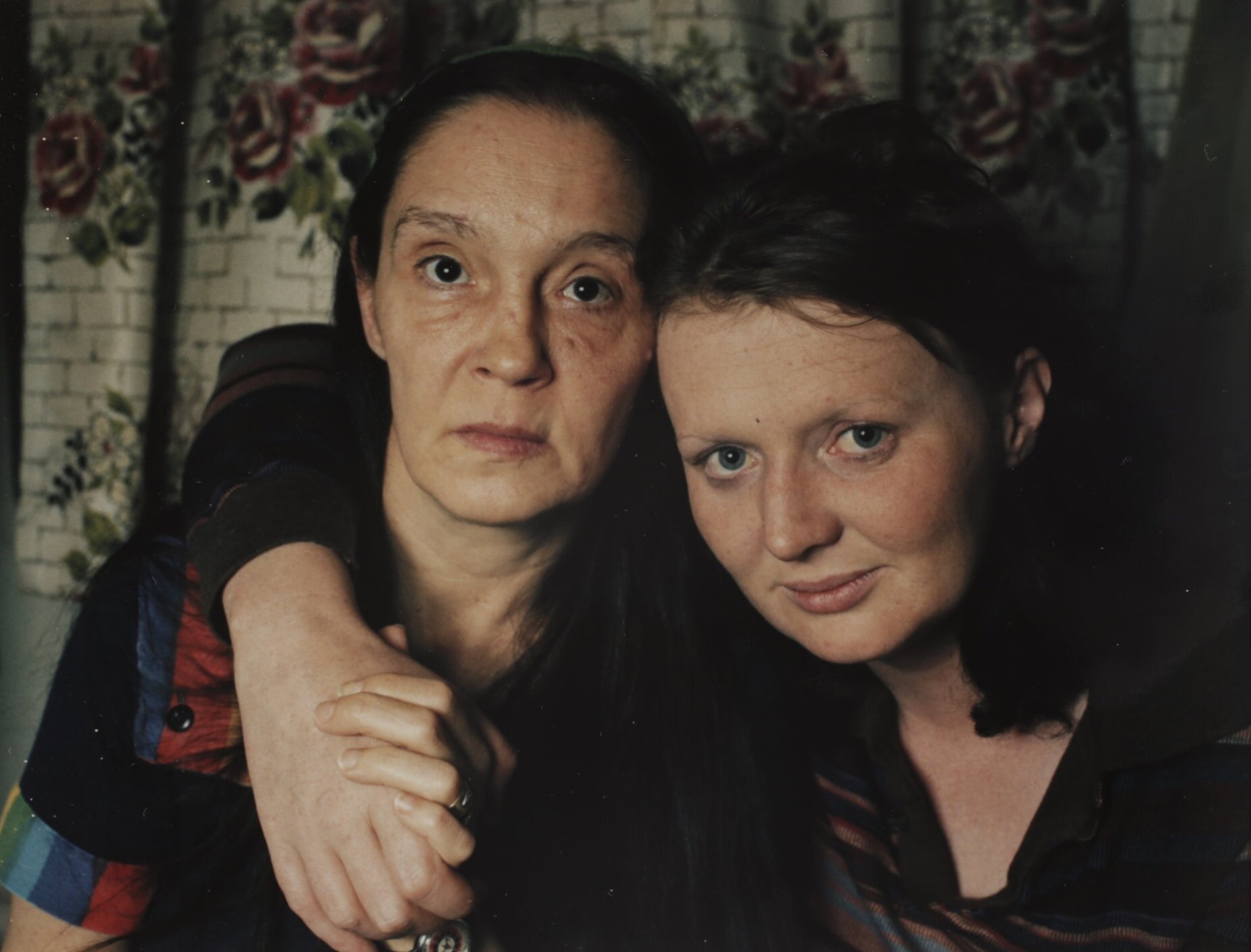
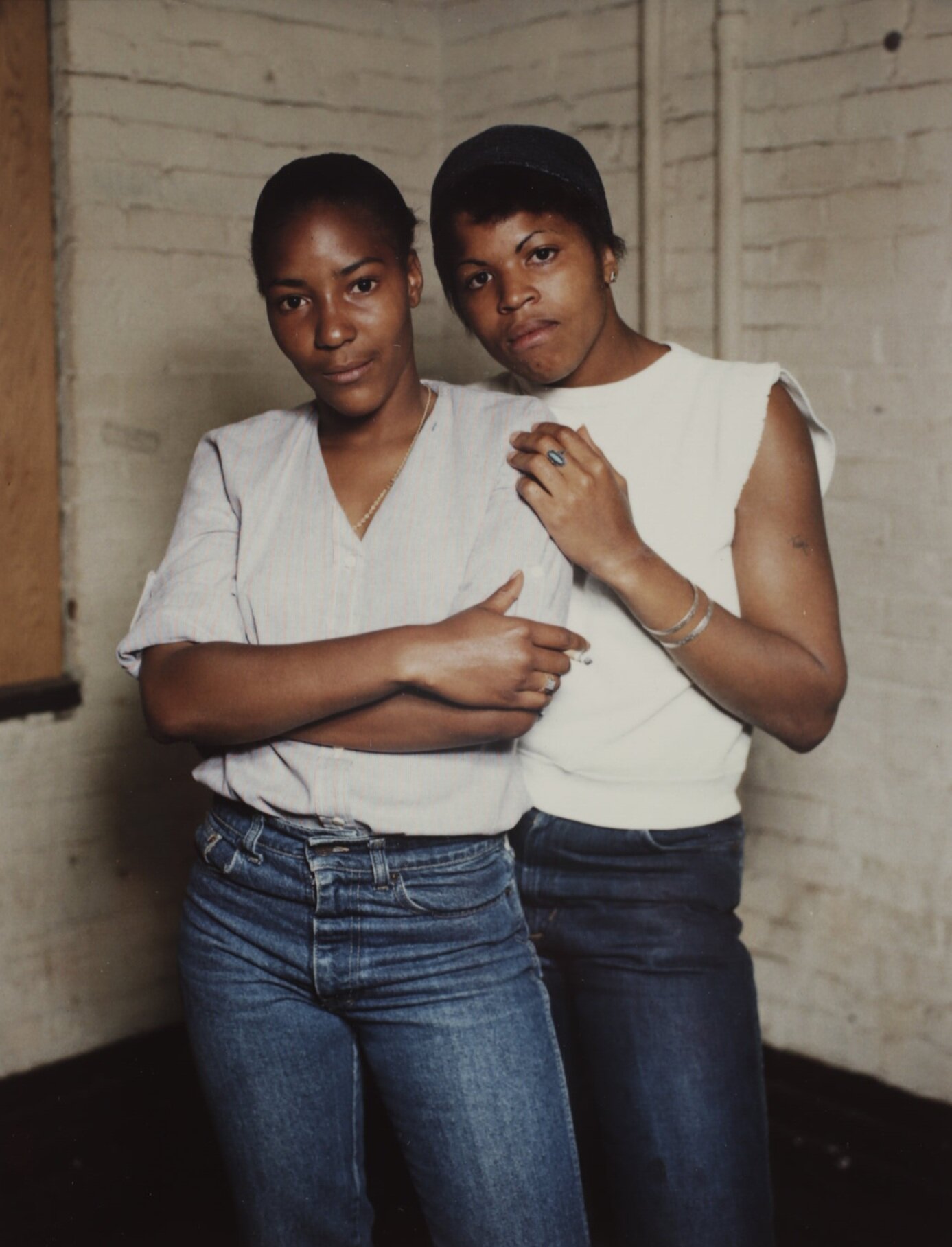
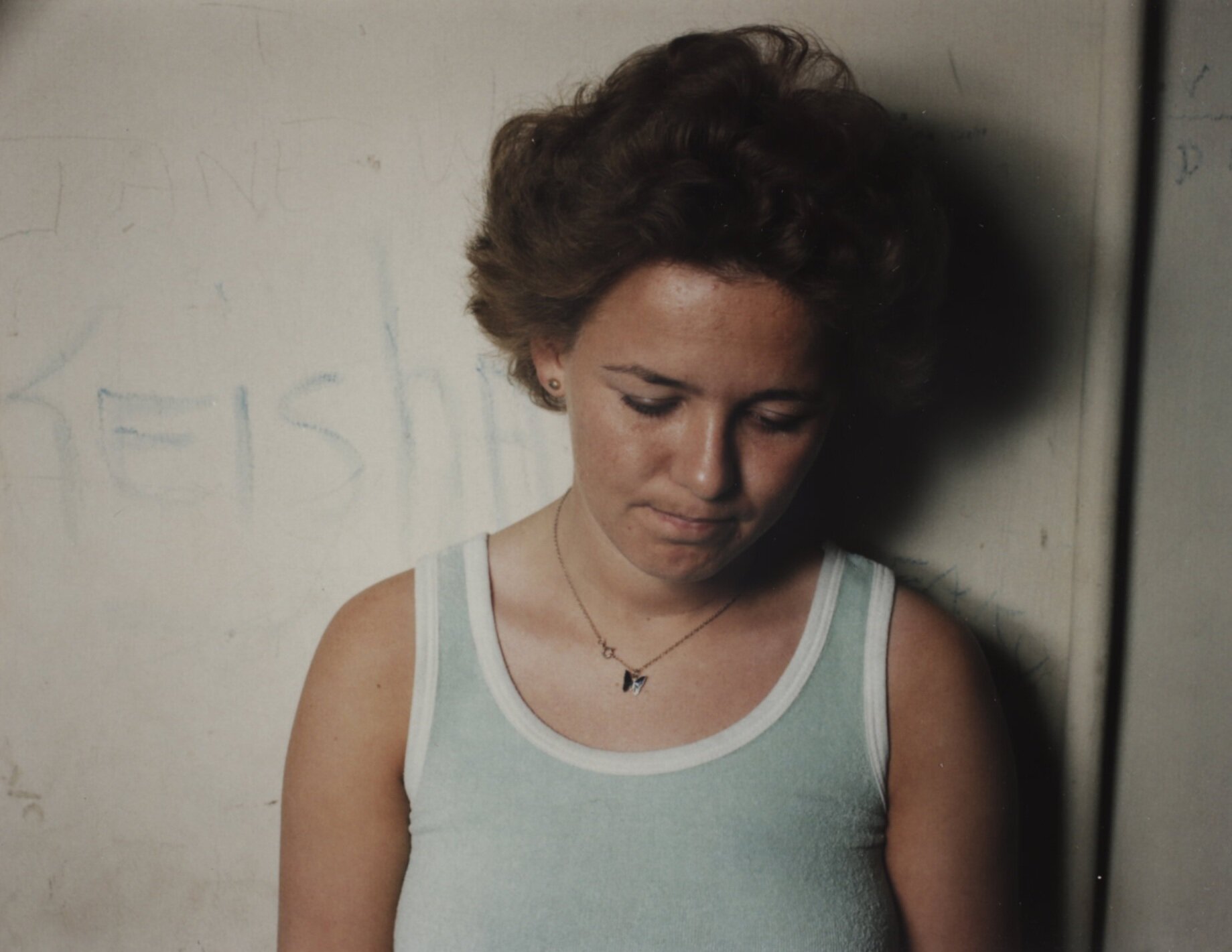
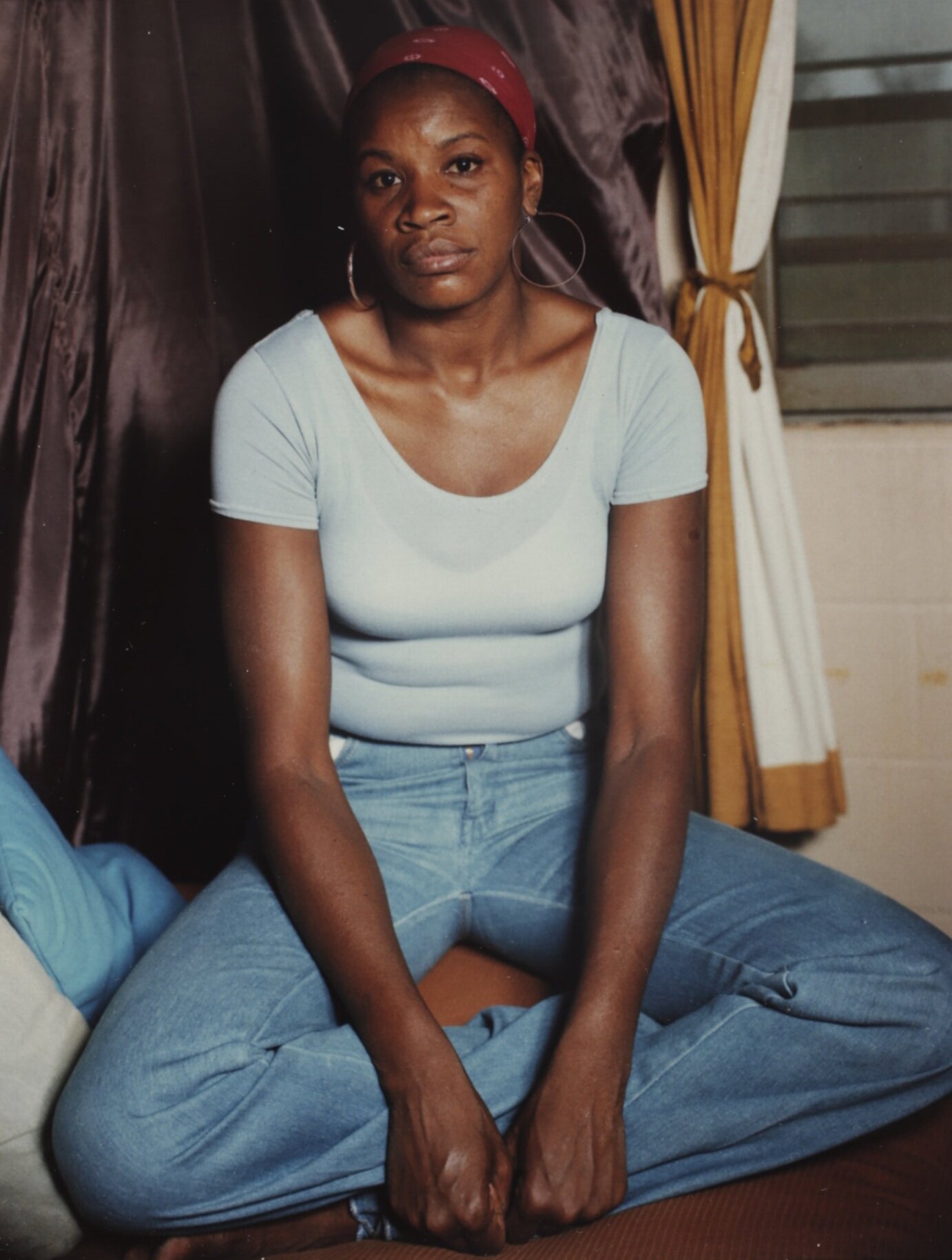
Jack Lueders-booth
Women Prisoners
We are excited to be exhibiting Jack Lueders-Booth’s iconic series, Women Prisoners. In 1977, Jack Lueders-Booth, and his daughter, Laura Booth, went to MCI Framingham where they converted long abandoned prison cells to photographic darkrooms, as basis for the photography classes that they would teach to the inmates. When their time there was to end, in the Summer of 1978, Lueders-Booth could not bring himself to leave. He remained for seven more years, making photographs of insightful and sensitive depth, and recording oral histories of remarkable and trusting candor, later writing:
“What repeatedly drew me to this prison for more than seven years was a fascination with, and a fondness for, the women themselves – the profound sadness of their lives, their persistence in asserting values of their own derivation, and most remarkably, their ability to find hope, and even optimism, in the seemingly impossible, and against the worst of all odds. I admired them greatly for this. It was never my intention in this work to photographically describe the physical place of the prison itself (although some photographs inevitably do), but rather, my interest from the beginning was only in the women themselves, and their families, and their friends.
By time and familiarity alone, the guards, the warden, and his entire administration, had come to allow me with my cameras to wonder wherever I wished, unescorted, and unaccountable.” – Jack Lueders-Booth
These vintage prints: black and white gelatin silver prints, 4x5 Polacolor II prints and hand-processed chromogenic prints, document this photographer’s unprecedented access to these women prisoners. The prison cells have been made to look more like home than jail by hiding their window bars within faux window slats, their impenetrable steel doors with the veneer of bedroom paneling, and their bullet proof latches with brushed aluminum door knobs-all these disguising and thoughtful appointments were made to these cells under the first term of Governor Dukakis. Lueders-Booth’s genuine portrayal of these lives provides an intimate reveal of mothers, daughters, and sisters; women of all ages, races, and circumstance; woman who gave up everything even their children because of illegal mistakes and decisions.
Anyone who observes these photographs with the same care with which they were made will come away knowing something of these women, something central. While photographing, he interviewed the women, giving a voice to a disenfranchised, marginalized group. The integrity of each image reveals the trust between photographer and subject. Individual and group portraits display pride, dignity and sometimes defiance. Images of family visits are energized, full of action as children reunite with their mothers. These images are honest portrayals of the everyday lives and activities for these women.
This work was supported by fellowships from the National Endowment for The Arts, The Massachusetts Council on the Arts of Humanities, The Artists’ Foundation, The Polaroid Foundation, and The Massachusetts Prison Art Project.
Earlier selection from this project were featured in: Aperture Quarterly's 1983 Spring Edition; Boston Now, The Institute of Contemporary Art; New American Photography, Columbia College of Photography, Chicago IL.
New selections from this same project will also be included in Aperture Quarterly’s 2018 Spring Edition, "Prison Nation", accompanied by a traveling exhibition of the same name, opening at The Aperture Foundation Gallery, February 7 - March 7, 2018.
Lueders-Booth’s photographs are included in important collections, including those of The Addison Gallery of American Art, The Art Institute of Chicago; The DeCordova Museum and Sculpture Park; The Hood Museum; The Fogg Art Museum; The Library of Congress; The Museum of Modern Art, NYC; The Museum of Modern Art, San Francisco CA; The David Rockefeller Center for Latin American Studies at Harvard University.
Jack Lueders-Booth continues to photograph and to teach. He resides at his home and studio, in Cambridge MA.
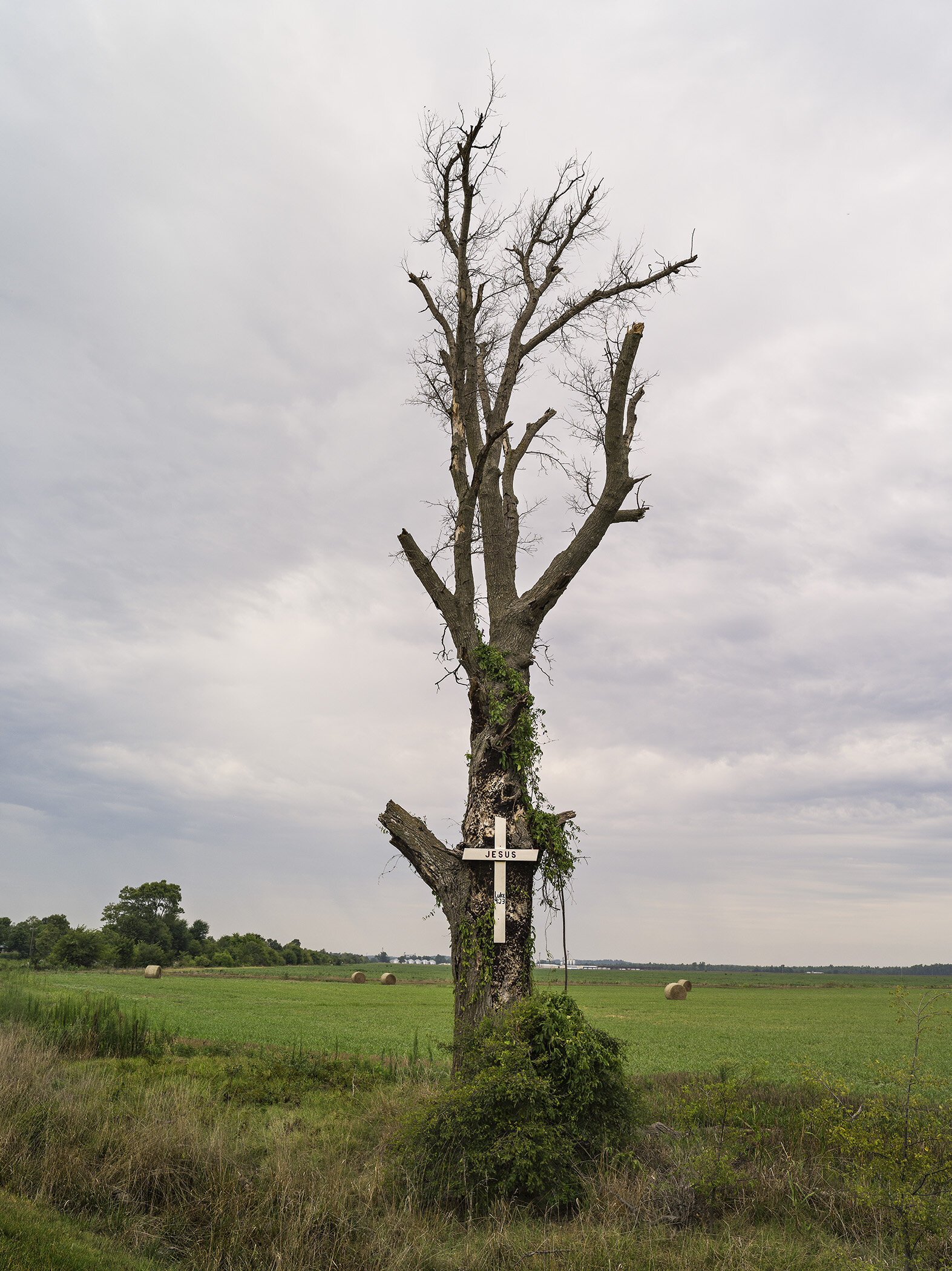

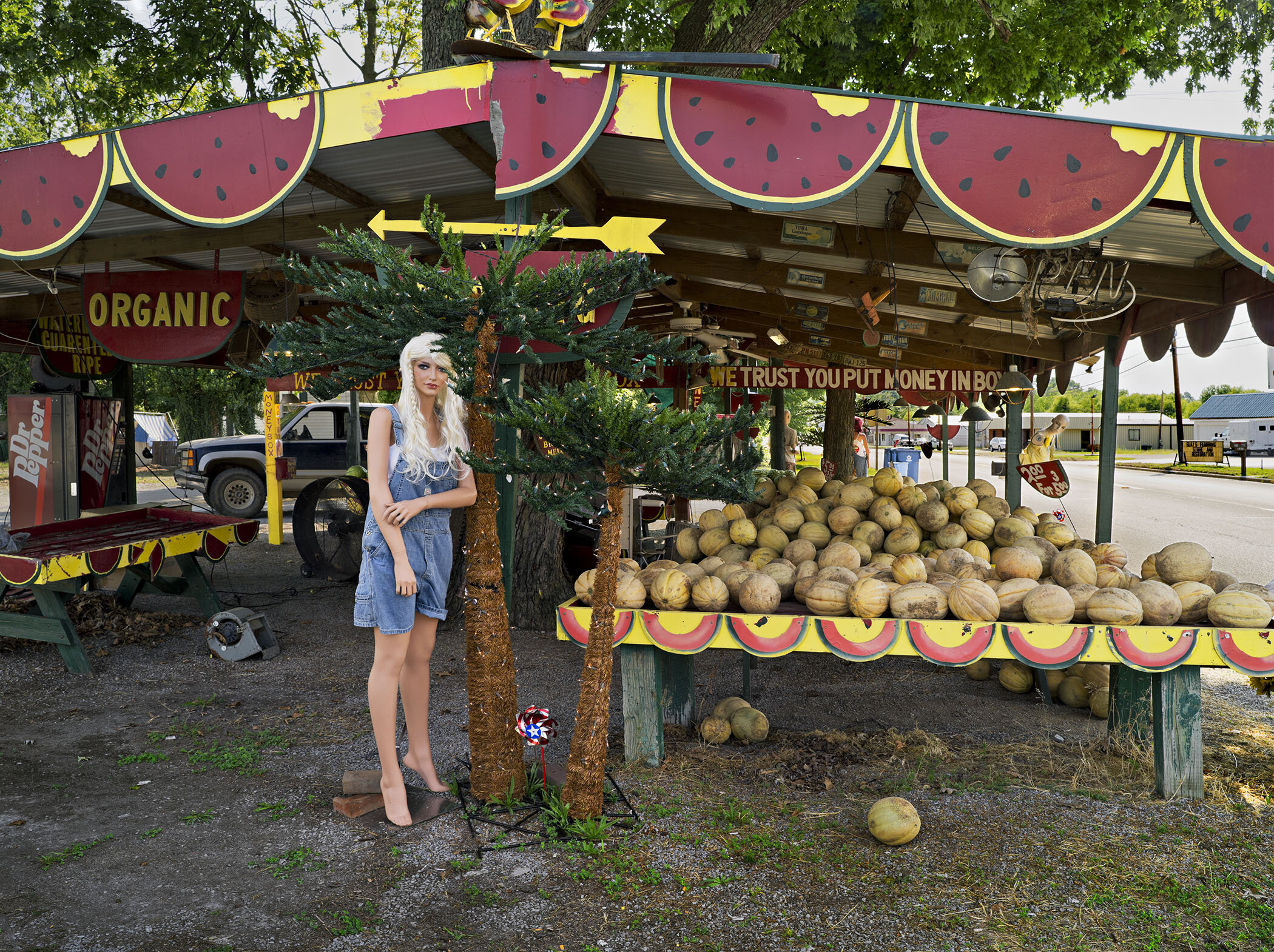
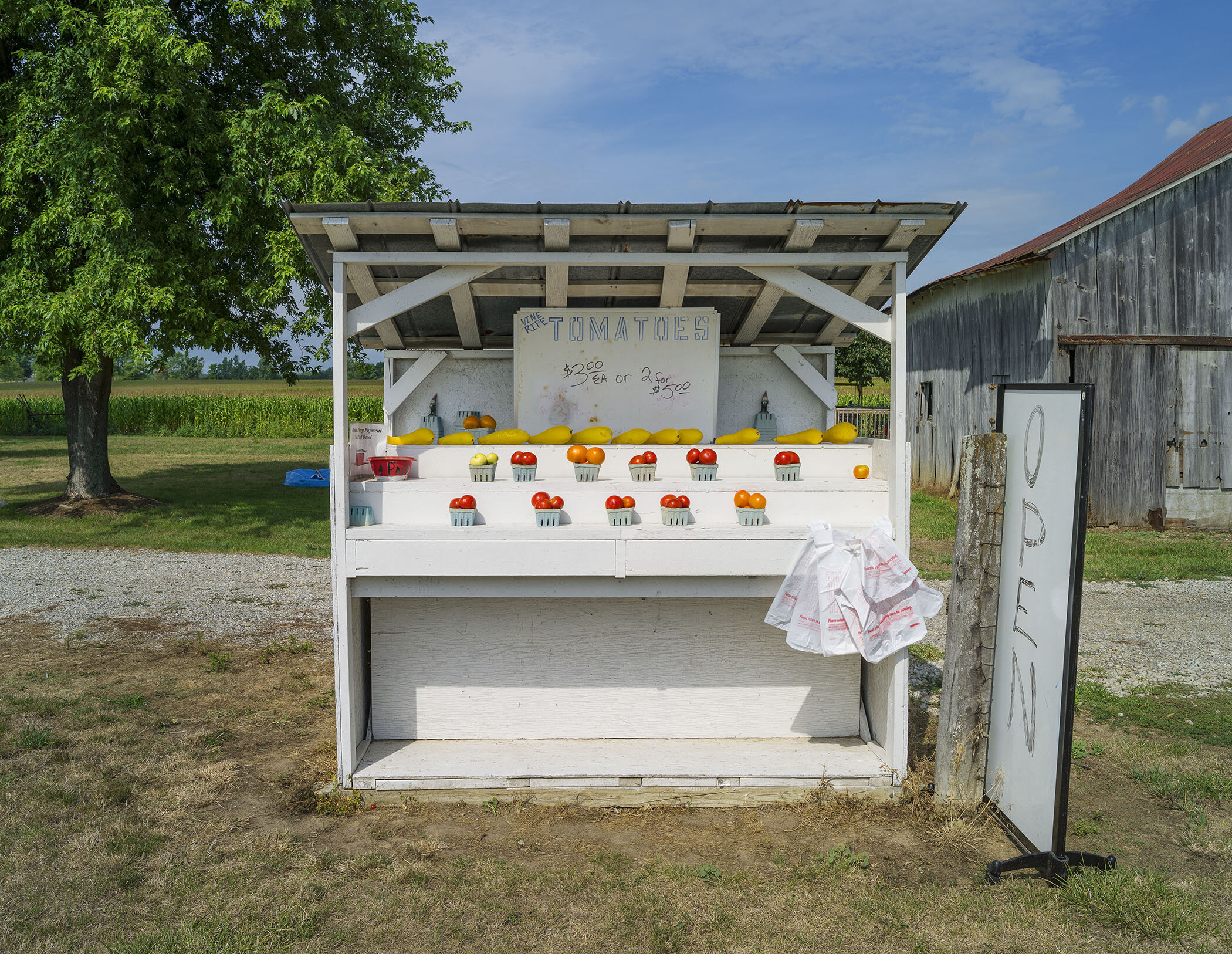
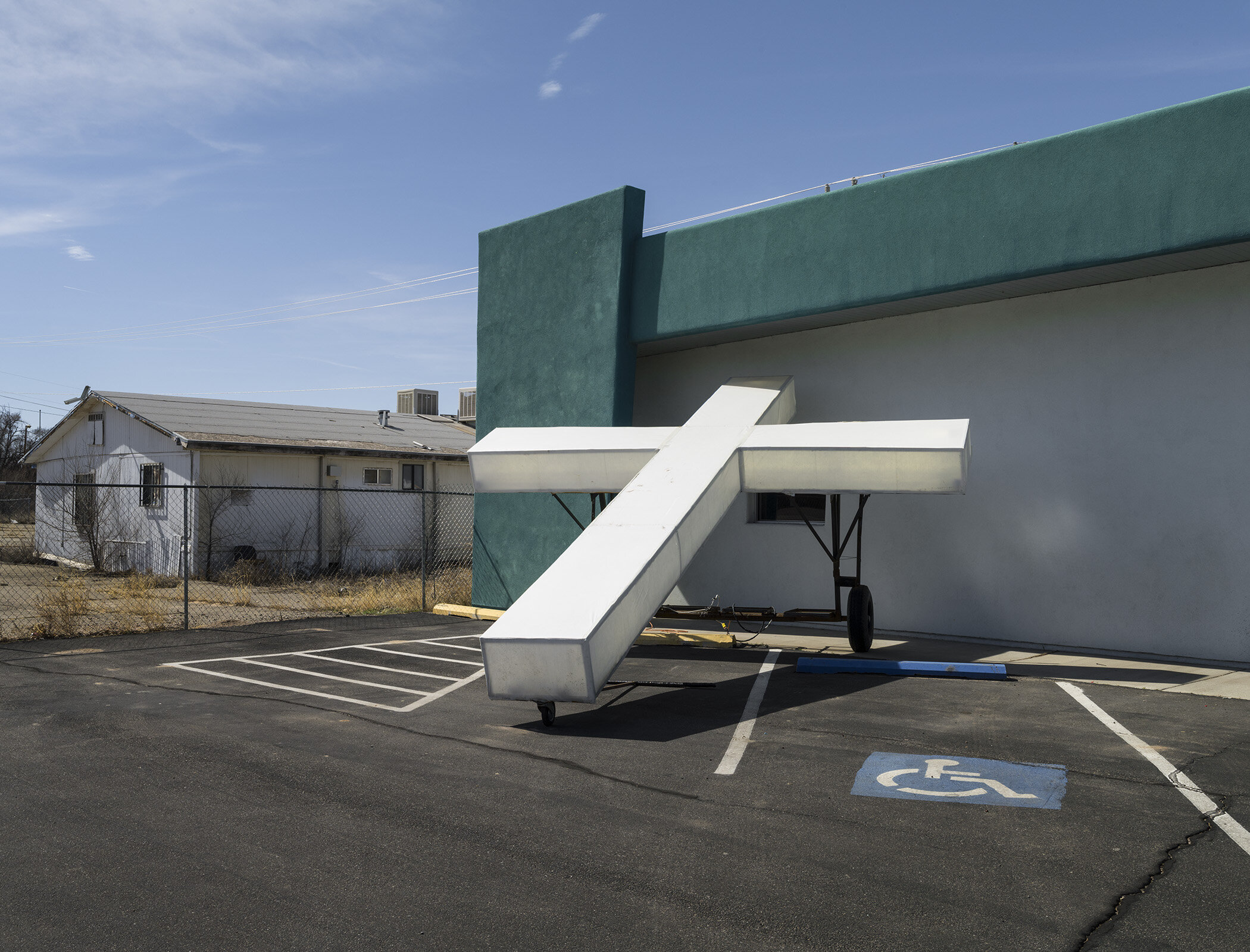
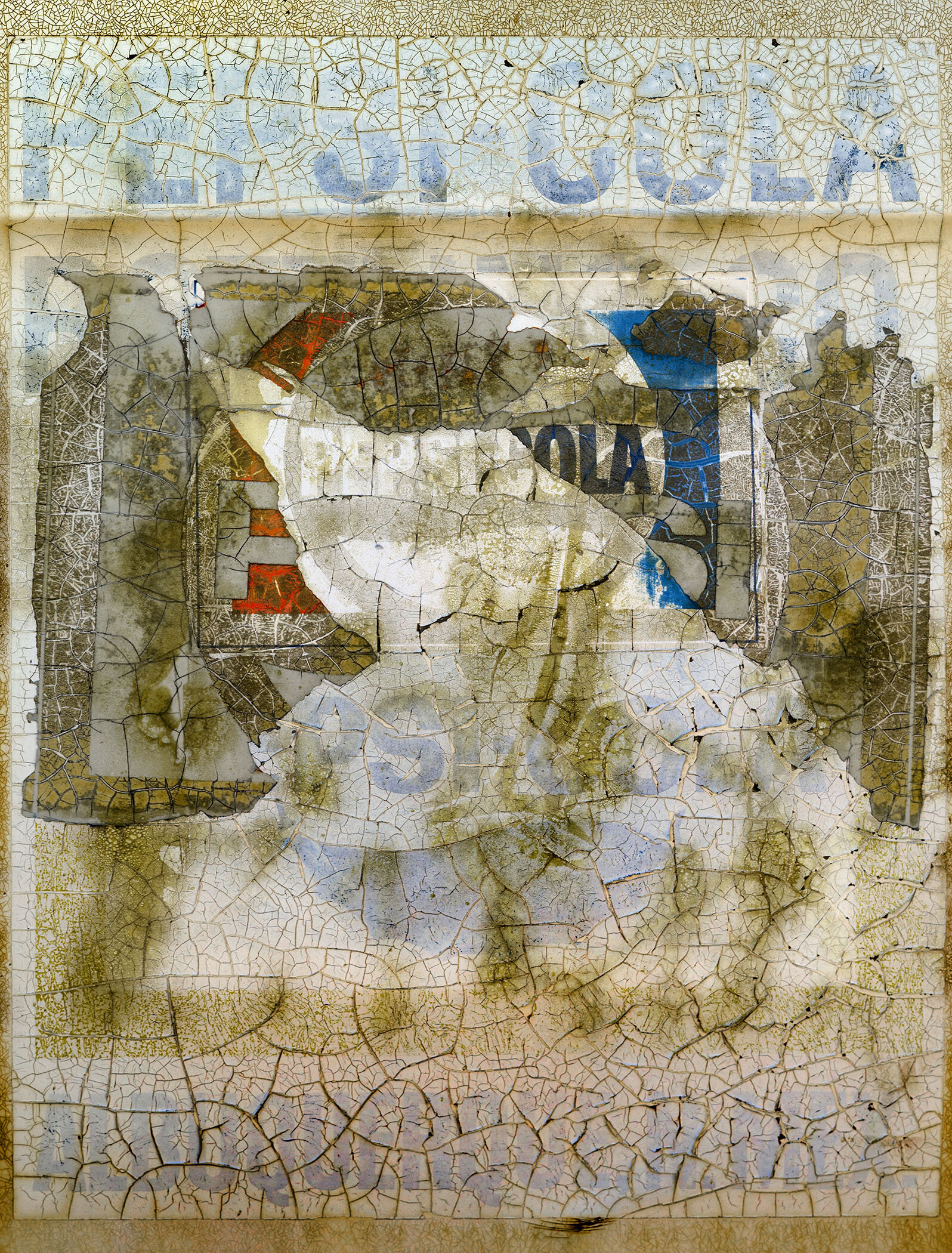
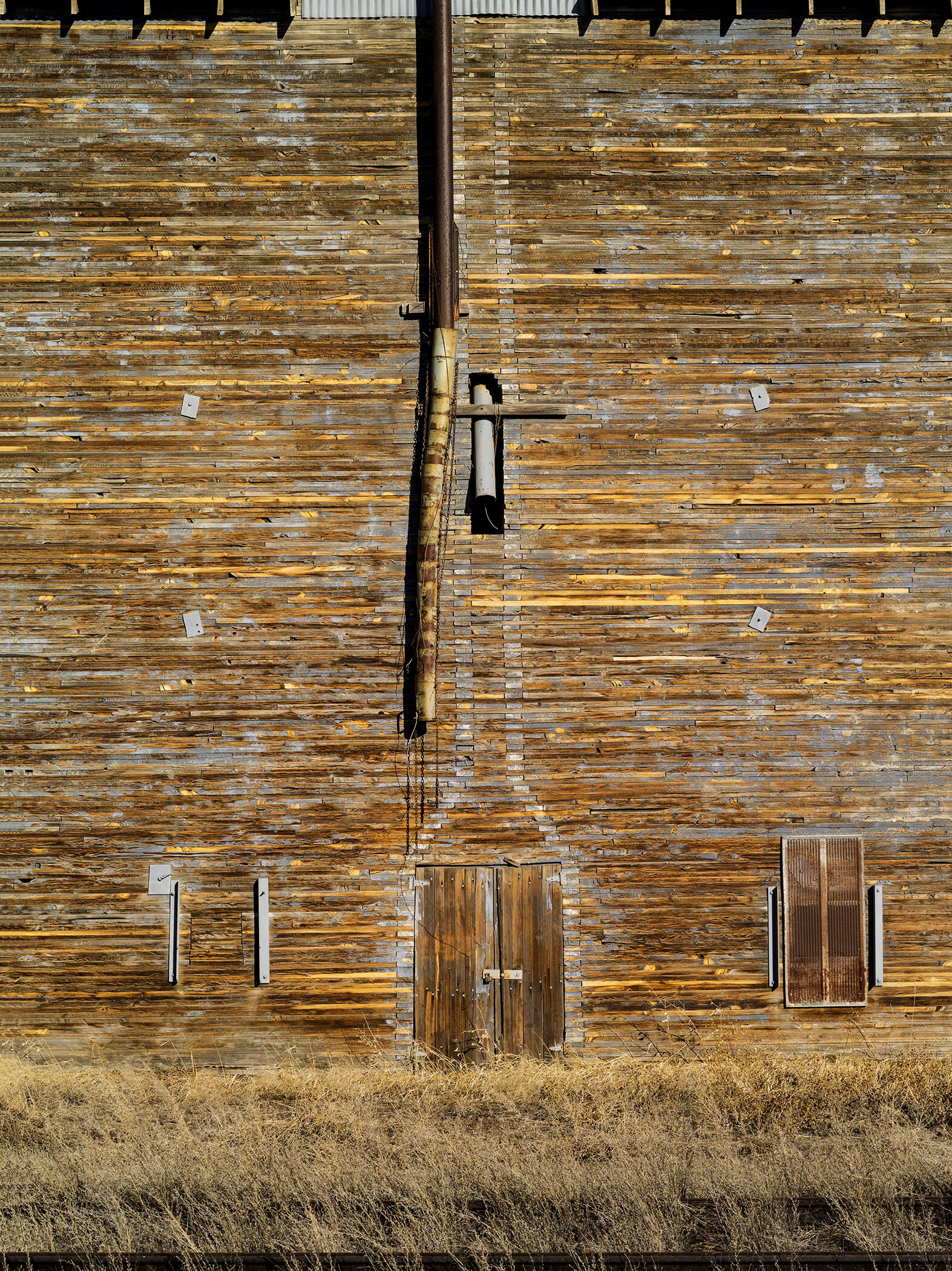
Frank Armstrong
Often In a Different Landscape
Frank Armstrong often finds himself in a different landscape as he travels north, west, and south from Massachusetts across the United States. Often towing a small trailer behind his truck, he can spend weeks at a time on the road. Photographing the landscape for over 50 years, he prefers to be off the beaten path. He’s not in a hurry. Armstrong develops a kinship with the new environment and sets out to see. He is not interested in the big cities with their skyscraper skylines but rather in what is left unseen in the small towns and on the back roads, concentrating on the natural landscape. In all of the images, Armstrong is never more than 20 yards from the road.
Armstrong’s landscapes capture Americana! Signs, symbols, cemeteries, deserted factories, vast open spaces, repaired homes, porch collections, isolation, irony, and humor are all present in the multiple layers of information these photographs provide for us. Armstrong, an anthropologist of sorts, interprets the visual reality presenting us with a new directory of American Culture. These wonderfully composed images reveal all the trappings from how individuals personalize their habitats to how man has altered and adapted to the challenges of place.
Armstrong’s work is held in many private and public collections. Some of these are: National Museum of American Art, Washington D.C.; Museum of Modern Art, New York; Museum of Art, Carnegie Institute, Pittsburgh, PA; Amon Carter Museum, Fort Worth, TX; Museum of Fine Arts, Houston, TX. He teaches at Clark University.
“I photograph to validate an existence, and for the sheer ecstasy of pleasure I feel at that moment when the dialogue between myself and the subject reveals what Vincent van Gogh called "...a feeling for the things in themselves." It is a passage from things seen to things known.” -Frank Armstrong
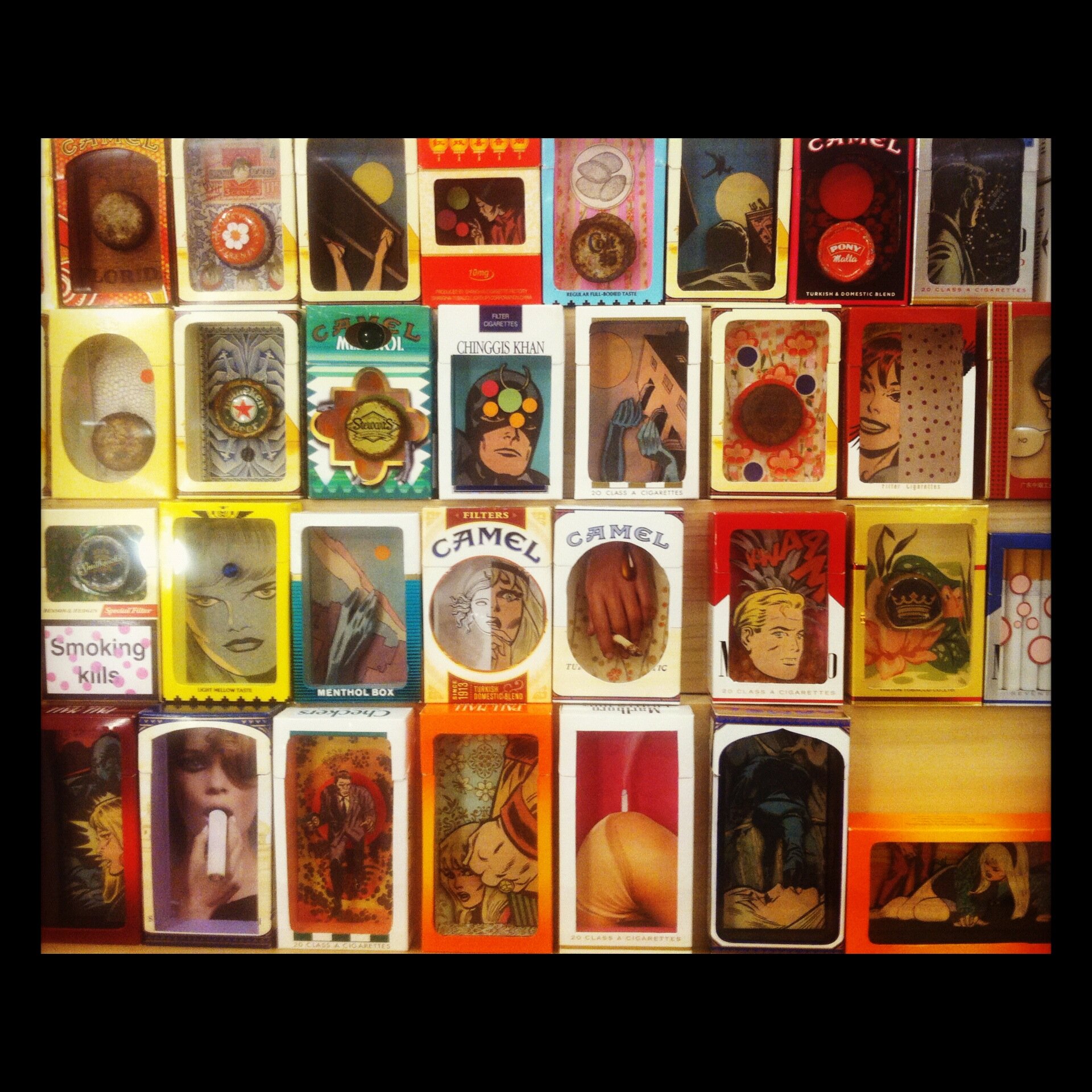

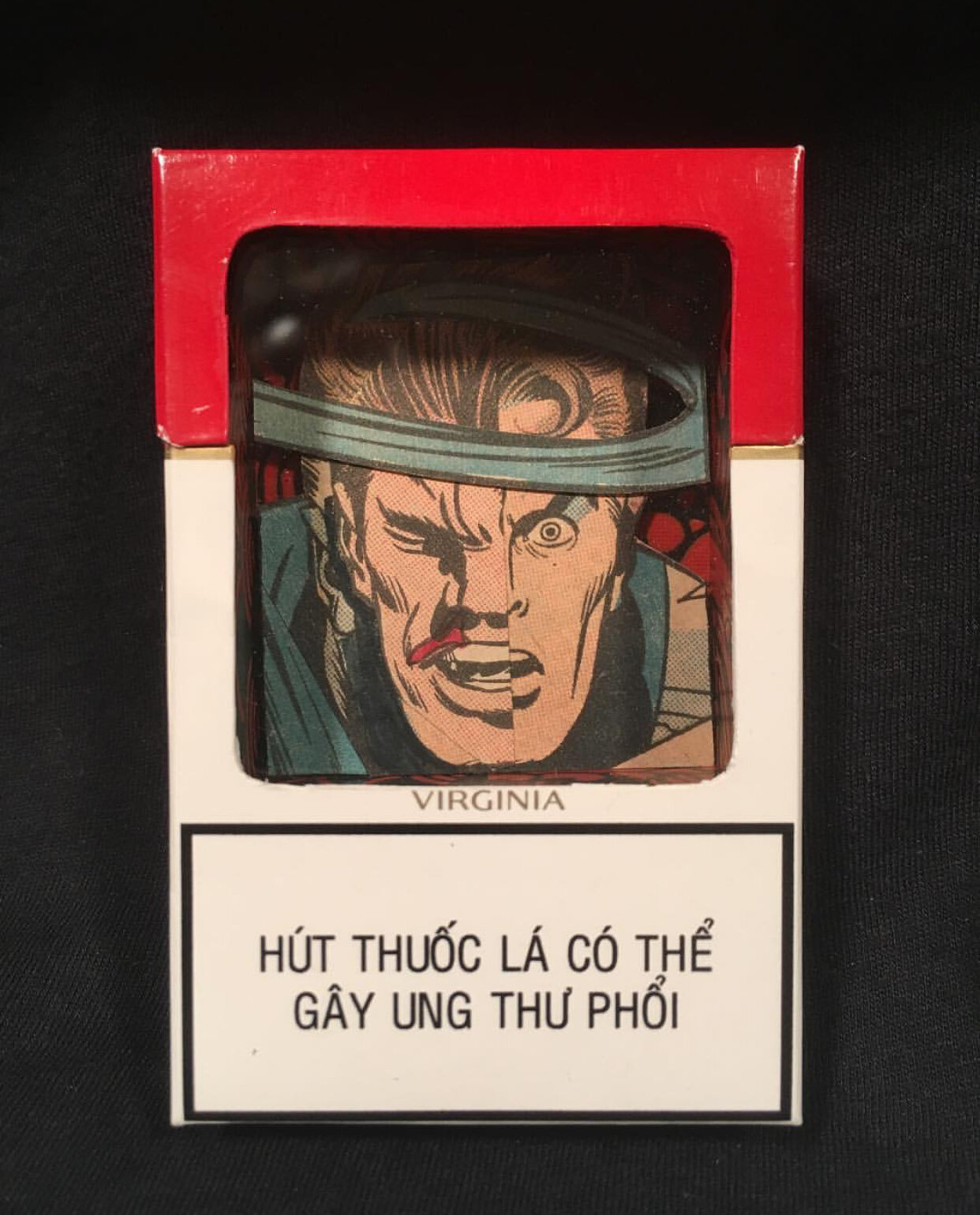
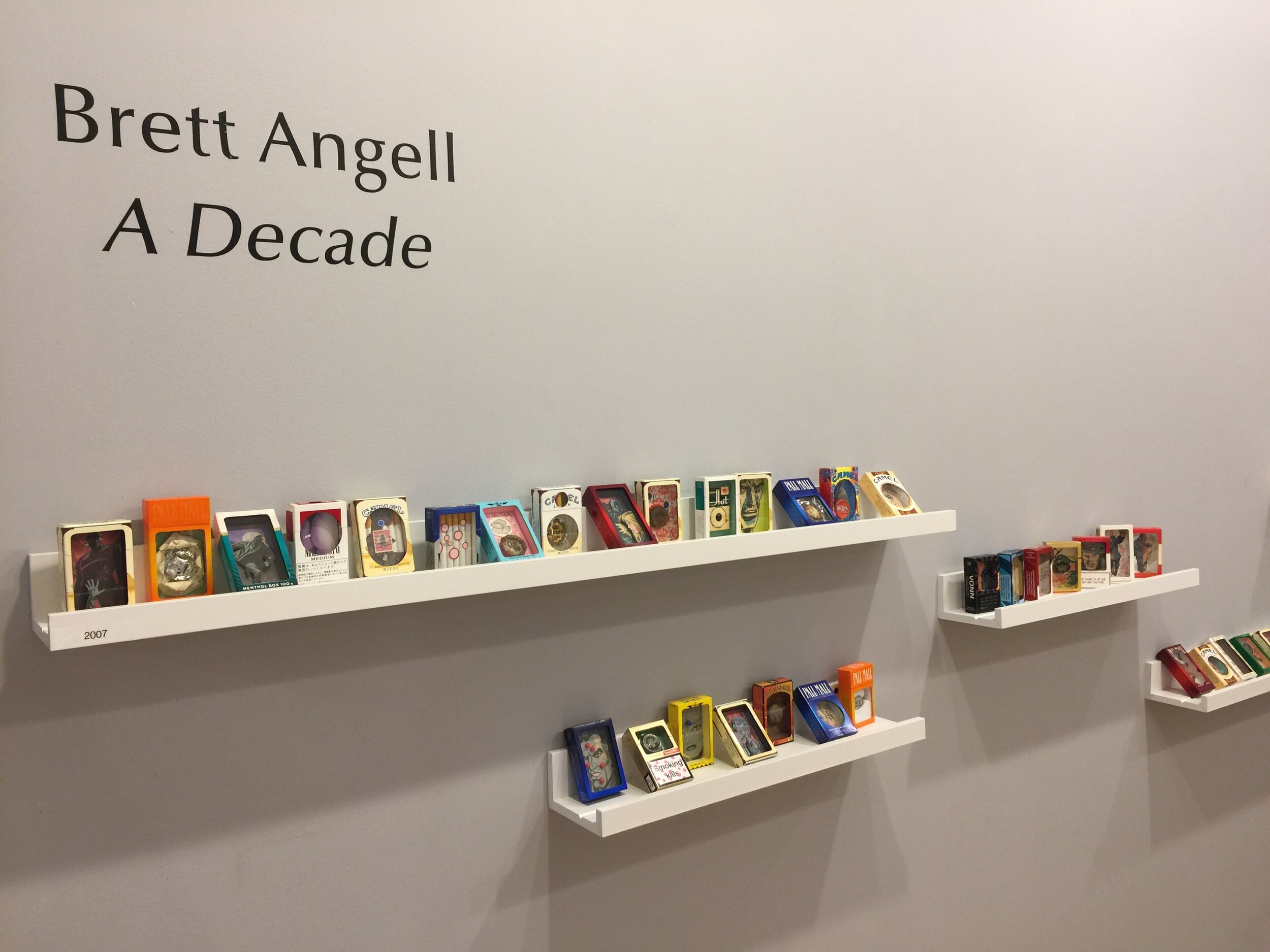
Brett Angell
A Decade
This is Brett Angell’s third exhibition at the gallery. He is known for his beautifully rendered gouache paintings and collages framed in repurposed vintage wooden containers. For a decade, he has been constructing miniature shadow box dioramas out of discarded cigarette boxes. All collages are handmade to perfection with every detail considered and every surface designed. The subject matter varies with each year different than the one before. We are pleased to be presenting 10 shelves with 10 years!
“While not a smoker myself I have always been attracted to the design and scale of cigarette packaging. I am giving these discarded packs a useful and unexpected second life using them as frames or containers for the three-dimensional collages.
These intimate hand held works, like all my recent work, celebrate the domestic scale that we are so unaccustomed to when viewing 21st century “super sized” contemporary art. These collages are hand made and all the construction and openings are meticulously cut by hand. In this group the graphic design of the original cigarette box has been very consciously worked into the composition of the whole object.
Message, mood, emotion, depth and humor are consciously present in these small works. Big doesn’t always equate with power or importance; sometimes small can deliver a big impact." -Brett Angell
Angell lives and works in Boston. Good things come in small packages!
